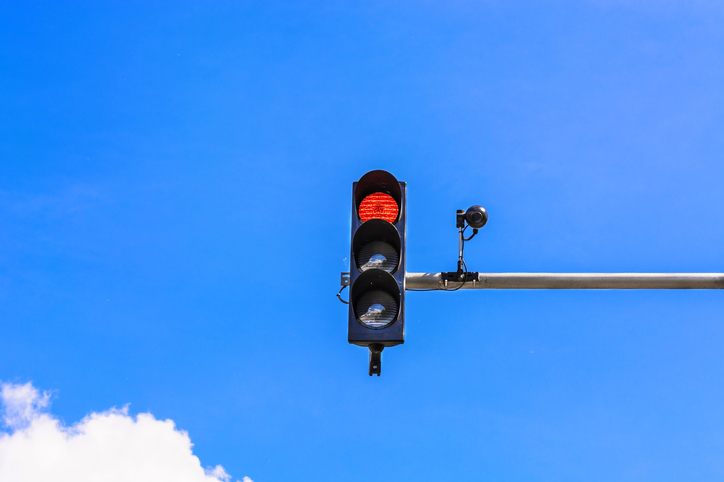(The Center Square) — A Raleigh-based law firm is representing residents challenging red light camera laws in Greenville and Wilmington based on alleged violations of a state constitutional prohibition on local legislation aimed at public health.
The firm Milberg, Coleman, Bryson, Phillips, Grossman, PLLC is representing eight residents in the Greenville lawsuit and a single plaintiff in the Wilmington lawsuit to challenge the North Carolina statute on the “use of traffic control photographic systems” — the state law authorizing specific cities to operate red light camera programs.
Both lawsuits, designed as class action suits, claim the statute is a local law that “authorizes (red light camera enforcement programs) in only a select few of the 552 total municipalities in North Carolina.”
The law currently allows the programs in Charlotte, Greenville, Wilmington, Raleigh and Fayetteville.
The lawsuits cite Article II, Section 24 of the North Carolina Constitution that bans local acts related to health, sanitation and nuisances, which the plaintiffs argue render the state’s red light statute “void and unenforceable.”
The lawsuits are filed against the individual cities, as well as Senate President Pro Tempore Phil Berger, R-Rockingham, and House Speaker Tim Moore, R-Cleveland.
Plaintiffs want the trial courts to nix the state law and refund money paid for citations under the law. If successful, the lawsuits would effectively block any city from using red light cameras.
The Greenville case, filed on March 31, and the Wilmington case, filed April 4, are both cited in a North Carolina Supreme Court filing Monday by State Solicitor General Ryan Park in reference to a different case centered on Greenville’s red light camera program: Vaitovas v. City of Greenville.
A North Carolina Court of Appeals panel unanimously rejected an appeal in that case, which challenged a bill dealing specifically with Greenville, rather than the underlying state statute, The Carolina Journal reports.
Plaintiffs in Vaitovas appealed to the state Supreme Court, and Park argued the other pending cases in Greenville and Wilmington are better suited to address the legality of the red light cameras because they center on state statute, rather than the Greenville specific law.
Park noted that the Court of Appeals found the local law in Greenville to finance red light cameras “does not impermissibly relate to health, sanitation, and the abatement of nuisances.”
“The Court of Appeals premised its ruling in part on the fact that plaintiff ‘did not challenge the underlying statute’ that authorized Greenville to operate a red light camera program,” Park wrote in the Monday filing urging the Supreme Court not to take up the Vaitovas case.
“The legislative defendants were recently served with two complaints that squarely challenge that underlying statute,” Park wrote. “The legislative defendants respectfully submit that this development only reinforces that this court’s review is not warranted in this case.”
Park argued the other cases in Greenville and Wilmington focused on the state statute are more appropriate lawsuits to consider the constitutionality of the red light camera programs.
Yet another case regarding Greenville’s red light camera program, Fearrington v. City of Greenville, is already before the state Supreme Court, which blocked an appeals court ruling in that case.
The ongoing Fearrington case is centered on a claim Pitt County schools did not collect enough “clear proceeds” from red light camera fines, The Carolina Journal reports.
Originally published by The Center Square. Republished with permission.
Internet Info:
Joe Barnett, “Red Light Cameras Undermine the Rule of Law,” Budget & Tax News, September 13, 2019: https://heartlanddailynews.com/2019/09/red-light-cameras-undermine-the-rule-of-law/
